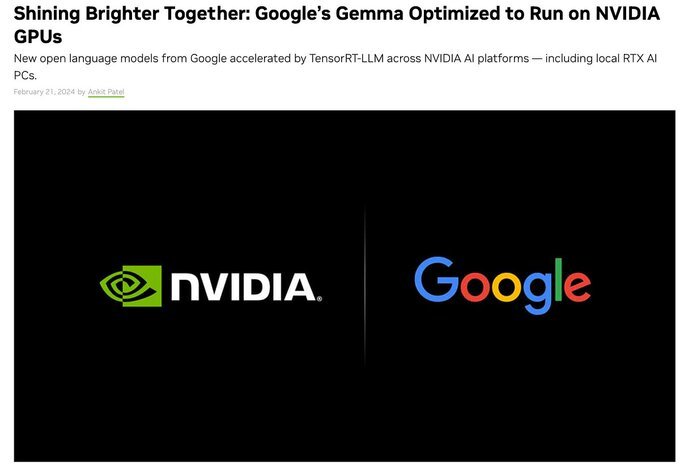We’re pleased to announce that the Theta team is in its final stages of EdgeCloud development and finalizing a set of open-source AI models that will be supported on launch. AI developers will be able to select and deploy popular generative AI and large language models like Stable Diffusion, Llama 2, Mistral and many other open-source AI models straight out of the box as well as deploy their own custom models. EdgeCloud provides these users immediate access to key GPU resources including NVIDIA A100s, V100s, T4s and other GPUs with accompanying dashboards and metrics for their various business use cases.
EdgeCloud will launch with the following AI models representing the most popular in the industry with millions of downloads (this list is subject to change):
- LLMs: Mistral-8x7B, Mistral-7B, Google Gemma-7B, Meta Llama-2–7B
- Image generation: Stable Diffusion XL (SDXL) Turbo, ControlNet
- Text-to-video: Stable Video Diffusion
- Speech recognition: OpenAI Whisper
- Code generation: CodeLlama
Mistral AI Large Language Models
Mistral AI is a French artificial intelligence startup. The company, co-founded by former Meta employees Timothée Lacroix and Guillaume Lample, and former DeepMind researcher Arthur Mensch, is fairly new, launched in April 2023. Its most powerful open-source model Mistral-8x7B and the original smaller model Mistral-7B is set to rival the latest GPT-4 and is fluent in English, French, Italian, German and Spanish.
Google Gemma LLM with Nvidia Optimization
Theta EdgeCloud will support Google’s latest Gemma-7B LLM launched in February 2024. Developed by Google DeepMind and teams across Google, it is a family of lightweight state-of-the-art open language models that is optimized for Nvidia GPUs and Google Cloud cloud tensor processing units (TPUs). This model is designed for efficient deployment and development on consumer-size GPUs in addition to cloud based GPUs, which opens up significant opportunities with EdgeCloud’s hybrid edge cloud computing platform in the future.
Meta Llama-2 LLM with Microsoft
In partnership with Microsoft, Meta announced Llama-2 in July 2023 as an open source large language model, free for both research and commercial use. Llama 2 models are trained on 2 trillion tokens and have double the context length of Llama 1 while Llama Chat models have additionally been trained on over 1 million new human annotations. This human feedback and reinforcement learning ensures greater accuracy and safety of chat content. Theta EdgeCloud will launch with Llama-2 support.
Stability AI text-to-image and text-to-video
Stable diffusion is a ground-breaking text-to-image and more recently text-to-video generative AI technology launched by Stability AI in 2022. Within the first two months of launch in late 2022, stable diffusion garnered more than 10 million users globally. It is perhaps the most popular and arguably the highest quality open source text-to-image genAI technology on the market today. Stable diffusion SDXL Turbo launched in November 2023, achieving unprecedented performance with a new distillation technology where image generation was reduced from 50 steps down to just one, enabling real-time text-to-image generation. Theta EdgeCloud will support both Stable diffusion SDXL text-to-image as well as the new cutting text-to-video Stable video diffusion models.
Innovative image-to-image genAI
Lastly in the text-to-image category, Theta EdgeCloud will support ControlNet, an innovative genAI model where the text-to-image model can take an additional input image. According to the developer on HuggingFace, “this is hugely useful because it affords you greater control over image generation, making it easier to generate specific images without experimenting with different text prompts or denoising values as much.”
Speech recognition and code generation
Speech recognition has had a long history in computer science research, OpenAI launched its machine learning model speech transcription and recognition in September 2022. Its latest Whisper v3 was released in November 2023 and boasts “semi-supervised learning” and training on over 680,000 hours of multilingual and multitask data. OpenAI claims it is more robust and makes 50% fewer errors than other models.
And finally, Theta EdgeCloud will launch with support for Meta’s CodeLlama, a state-of-the-art large language model for coding. According to Meta in January 2024, “it has the potential to make workflows faster and more efficient for current developers and lower the barrier to entry for people who are learning to code.” It can generate code, and natural language about code, from both code and natural language prompts (e.g., “Write me a function that outputs the fibonacci sequence.”) It can also be used for code completion and debugging. It supports many of the most popular languages being used today, including Python, C++, Java, PHP, Typescript (Javascript), C#, and Bash.












 All while Pfizer—a company with a $2.3 billion criminal fine for fraudulent marketing, bribery, and kickbacks—was given blanket immunity from liability and billions in taxpayer dollars to produce a vaccine in record time with no long-term safety data.
All while Pfizer—a company with a $2.3 billion criminal fine for fraudulent marketing, bribery, and kickbacks—was given blanket immunity from liability and billions in taxpayer dollars to produce a vaccine in record time with no long-term safety data.
























